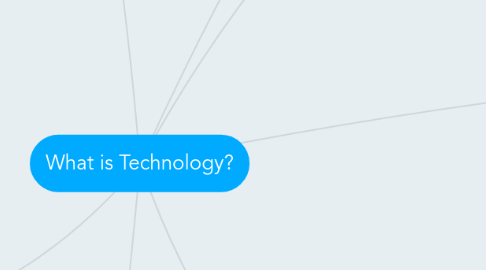
1. Simen Oestmo. (2012, November 7th) Stone Blades. Retrieved from Smithsonianmag: http://www.smithsonianmag.com/science-nature/early-bow-and-arrows-offer-insight-into-origins-of-human-intellect-112922281/?no-ist Android. (2014) tile-1.jpg. Retrieved from Android: https://www.android.com/static/img/phones/tips/tile-1.jpg Symphony No.5, Op.67 (Beethoven, Ludwig van). (n.d.). Retrieved from IMSLP: http://imslp.org/wiki/Symphony_No.5,_Op.67_(Beethoven,_Ludwig_van) Roach, C. (2014, September 29th) Are you too busy to improve? Retrieved from Flickr: https://www.flickr.com/photos/cliveroach/15389109732 TED Talks. (2010, February 22nd) Kevin Kelly tells technology's epic story. Retrieved from Youtube: https://www.youtube.com/watch?v=GS1xL1qcBa4 Wikipedia. (2016, January 9th) 1829. Retrieved from Wikipedia: https://en.wikipedia.org/wiki/1829 Dyer, J. (2009, December 27th) Defining the word "Technology" ... Four Times. Retrieved from Don't Eat The Fruit: http://donteatthefruit.com/2009/12/defining-the-word-%E2%80%9Ctechnology%E2%80%9D-%E2%80%A6-four-times/ Li-Hua, R. (2007) "What is technology?" Journal of Technology Management in China, Vol. 2 Iss: 3. Retrieved from Emerald Insight: http://www.emeraldinsight.com.library.sheridanc.on.ca/doi/full/10.1108/jtmc.2007.30202caa.001 Science & Society Picture Library Prints. Burt Typographer, 1829. Retrieved from Science & Society Picture Library Prints: http://www.ssplprints.com/image/83328/burt-typographer-1829 Kaku, M. (2011) Physics of the future: How science will shape human destiny and our daily lives by the year 2100. New York: Doubleday. pg 346-349.
2. Creative Aspect
2.1. I created a mindmap for my discussion post.
2.2. How was this creative?
2.2.1. I have never done a mindmap before, let alone in the place of a typed document!
2.2.2. I decided that https://www.mindmeister.com had just what I needed to keep my branches of thought organized, yet explore with a fun new medium.
2.2.3. I dove right in without any tutorial lessons and learned by trial & error how to work the GUI.
2.2.4. I attempted to structure the main body of my map in a way that described my train of thought.
2.2.4.1. My initial thoughts started out closer to center.
2.2.4.2. As I branched out and discovered new information, the map expands forward and upward, signifying my enlightenment.
2.2.4.3. My ultimate conclusion rests at the highest point, culminating everything I have learned in this module.
3. References
4. What I learned
4.1. Technology is hard to define. According to Kevin Kelly (2010), the word 'Technology' was first used in 1829. That's a rather new concept, relatively speaking!
4.1.1. 1829 in Technology
4.1.1.1. First patent for the Accordion
4.1.1.2. First patent for the Typographer
4.1.1.2.1. (Science & Society Picture Library Prints.) Burt Typographer, 1829.
4.1.1.3. First modern police force, the Metropolitan Police Service of London, England
4.1.1.4. (Wikipedia, 2016)
4.1.2. It is a function of...
4.1.2.1. Life
4.1.2.1.1. Natural Organization
4.1.2.2. The Universe
4.1.2.2.1. Energy
4.1.2.2.2. Matter
4.1.2.2.3. Information
4.1.2.3. Time
4.1.2.3.1. Trial & Error
4.1.2.4. Humanity
4.1.2.4.1. or is Humanity a Technology itself?
4.1.3. Is it a force of nature?
4.1.3.1. "Technology is selfish, technology is generous. That conflict, that tension will be with us forever." (Kelly, 2010)
4.2. The Four Definitions of Technology, according to John Dyer (2009):
4.2.1. "Hardware": Physical objects & tools. Things that we make.
4.2.2. "Manufacturing": Technology is a process of creation.
4.2.3. "Methodology": Continuous improvement and standardization for greater efficiency and consistency.
4.2.4. "Social Usage" Our society's demands shape technology.
4.3. Technology is a process through which we can improve on the past, by applying all our accumulated knowledge and experiences towards a practical solution. (Li-Hua, 2007)
5. My Initial Thoughts
5.1. To me, technology is an innovation that improves on older methods.
5.1.1. (Simen Oestmo, 2012) Stone Blades. It can be as simple as harnessing fire, hunting with spears, or the first wheel.
5.1.2. (Android, 2014) tile-1.jpg It can be as complex as an industrial assembly line, a musical instrument, or the lastest android phone.
5.1.3. (Beethoven, 1807 - 1808) Symphony No. 5, Op.67. It can even be a general concept, such as musical notation, or File Transfer Protocol (computers use this to exchange files).
5.1.4. (Clive Roach, 2014) Are you too busy to improve? The innovation should improve / build on what we had before; it should make a task easier, more efficient, more consistent, etc.
6. My New Understanding
6.1. Technology is a continual process of experience, innovation, creation & refinement.
6.2. Though I was on the right track, I have a greater appreciation for what can be considered technology. Even something as base as the language I speak can be considered technology, according to some definitions.
6.3. Are WE technology? I'm not sure if humanity equals technology. Perhaps we are opposites, yet equal, like two sides of a coin. For it is technology that pulls us from the abyss of extinction, and yet it is humanity that must hold technology back from progressing out of our control.
7. Our society places expectations and restrictions on technology, but technology can also define us as a society!
8. According to Michio Kaku (2011) There are four stages of technology as well. It is the destiny of all technologies to enter stage four as waste (electricity, water are now cheap utilities), or continue to be improved upon at stage two (like the personal car).
8.1. Example: Paper
8.1.1. Stage I: Closely Guarded Secret At its conception, paper was a valuable and rare commodity!
8.1.2. Stage II: Personal Book With the invention of type printing, the personal book could allow a single person access to hundreds of pages of paper!
8.1.3. Stage III: Personal Library The cost of paper fell further, allowing the purchase of many books at a practical cost!
8.1.4. Stage IV: Waste Now, it is so cheap we use it to wrap our food...
